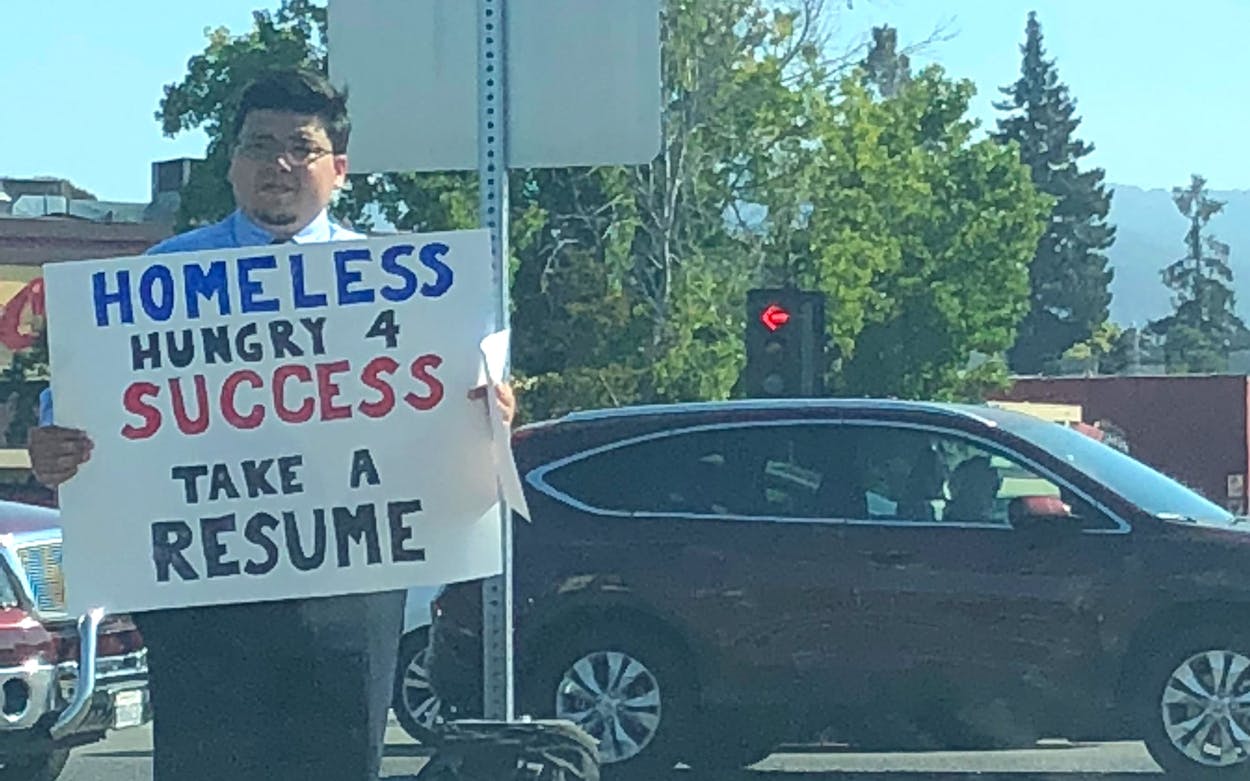WHO: Twenty-six-year-old Texas A&M graduate David Casarez.
WHAT: A viral story about a homeless person that doesn’t involve harassment, violence, or judgment.
WHY IT’S SO GREAT: On Friday afternoon, a woman tweeted a photo of a man she saw handing out resumes and holding a sign on a street corner in Silicon Valley.
Today I saw this young homeless man asking for people to take a resume rather than asking for money. If anyone in the Silicon Valley could help him out, that would be amazing. Please RT so we can help David out! pic.twitter.com/ewoE3PKFx7
— FullMakeup Alchemist (@jaysc0) July 27, 2018
David Casarez graduated from Texas A&M in 2014 with a degree in Management Information Systems and spent the next three years working in a tech role for General Motors in Austin. In September 2017, he decided to move to California to pursue startup success, but work is harder to find than he thought. Unemployed in a region with sky-high rent (a one-bedroom apartment in Google’s hometown of Mountain View averages around $2,500 per month), he burned through his savings, lived in his van, and fell behind on payments. For much of the past two months, Casarez slept in a park.
His situation sounds like a disappointment, but when he stood out on a street corner, he didn’t ask people for money. Rather, he brought a stack of resumés, printed with the expectation that either someone with connections might take one or that someone in the tech hub would snap a photo, put it on social media, and spread his phone number and email address on the CV virally. That’s exactly what happened.
Casarez told reporters that since Friday, he’s received hundreds of job inquiries, from companies in Silicon Valley and around U.S. and Canada. Whether any of those are a good fit remains to be seen, but the interest makes it likely that he’ll be out of the park and into an apartment soon.
Of course, not every homeless person is in Casarez’s position. He had the resources to spend his money on printing resumes rather than saving it for food, and he was able to turn down offers of money, which likely made him more sympathetic to those who look past homeless people forced to focus on their immediate needs. His education and experience (plus his shirt and tie) probably helped many passerby see him as someone temporarily down on his luck, rather than associate him with the stigma faced by many without a home.
Still, we’re happy to hear that Casarez’s situation might be turning around, and we’ll hold out hope that the enthusiastic, sympathetic responses might help those who have judged homeless people in the past to recognize their humanity a little more readily. In the meantime, we’ll keep an eye out for Casarez’s future startup.








